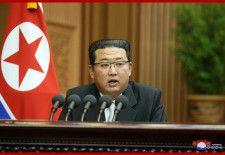The author explains that it is necessary for each country to unite and solve issues in the world, such as climate change.
Author Richard Haas

経済・安全保障で対立する米中関係、緊張が高まるウクライナ情勢を巡る米ロ関係。国際情勢は1強の超大国であった米国のかつての覇権が揺らぎつつあるようにもみえる。本書『The World [ザ・ワールド] 世界のしくみ』(上原裕美子 訳)は著名な米外交評論家の手になる国際関係の入門書だ。欧米・中東・アジアの歴史や地域事情に始まって、核拡散・気候変動・サイバー攻撃など全世界共通の問題にまで踏み込み、その実相を読み解く。外交の専門家はもちろん、グローバル時代に身を置く我々が身につけるべき視座を提供してくれる一冊だ。◇ ◇ ◇Author Richard Haasは、外交誌『フォーリン・アフェアーズ』を発行する米国の民間シンクタンク「外交問題評議会」の会長。外交官や外交政策担当の幹部として、長年、国際関係の現場を歩み、外交交渉や政策立案にあたった豊富なキャリアを積み重ねてきました。ジョージ・H・W・ブッシュ政権で大統領上級顧問(中東政策担当)、コリン・パウエル国務長官のもとで政策企画局長を務めています。著作も多く、とくに東西冷戦後の国際関係を巡って様々な情報発信を続けています。
■ Approaching the essence of international issues with historical "vertical yarn" and local "weft"
This book is roughly divided into four copies.Part 1 "Historical knowledge that you want to wear" looks back on the necessary history in considering the current international relationship."From the 30 -year war to the outbreak of World War I", "From World War I to World War II", "Era of the Cold War", "Era of the Cold War", it is argued in the four times axis to the present age.increase.We will explain the equilibrium and the powers of the powers, and suggests why we had to go through two World War, what the lessons should be, and how to make use of them in the future.It is summarized.Part 2 "The World" is divided into six parts: "Europe", "East Asia Pacific region", "South Asia", "Middle East", "Africa", and "American continent".The focus is on the commentary on each theory, which indicates future prospects.In the first part, it is not woven with a "vertical yarn" with history as the main, and in the second part with a "waddy thread" that spread it to the area, and approaches the essence of international relations issues.At the beginning of this book, the author explained the awareness of the problem that led to the writing.When I asked my nephew going to Stanford University about the course of college, I asked, "This young man has only taken a minimum of subjects other than major, and even the subjects that have been barely taken, have hardly held the basics.I understand".He said he felt a sense of crisis, saying, "Even though an excellent young man has entered the highest university in Japan, he has not learned the basics of his country and the world."The Japanese translation of this book is about 800 characters per page except for the chart, and the number of characters of two manuscript paper, with nearly 400 pages in total, and the hurdles are never low for beginners.However, because of the arrangement of plain translations and points, it can be said that it is an introductory book for not only diplomatic experts but also beginners to understand international relations.In the subsequent part of the "Global Era", "Terrorism and Terrorism Operation", "Nuclear diffusion", "climate change", "Internet, cyber space, cyber security", "trade and investment", "development and development", etc.We will identify the problems to be solved in the future.And the proposal is revealed in the final fourth part of the fourth part of the fourth part, "order and disorder", as to how the global issues are to work in the international community.At the end of the book, "for further learning" introduces magazines and websites that are likely to be helpful in considering international issues, and has been devised to help beginners understand.This book is written not only for young people, but for people of all ages.Many adults have gained age in society without any interest in these issues (the number of young people who have little knowledge of the editorial department and the world with little knowledge of the world).You may have learned, but you may have forgotten the majority.Above all, the knowledge that I learned by the same generation and the same generation has now been quite inadequate or inappropriate.History has been greatly elucidated in recent years.In the 1950s and 1960s, when I grew up, the Cold War was recognized as permanent, and the cold war has actually been established for 40 years after World War II.But the relationship was over, and the Soviet Union collapsed.Instead, China became the world's great powers.And from the Internet to artificial intelligence and climate change, new technologies and new problems that were once existed.Education is received while you are young, you can learn around the middle of your early twenties, and you will live in the next 50 years.We need to pour water into the aquarium of knowledge, who must go through a lifestyle like a highway.(Maigaki 17-18 pages)
次ページは:■対策に足並みがそろわない気候変動問題最終更新:NIKKEI STYLE